HIBA researchers were present at Information Studies Days (Informaatiotutkimuksen päivät) held in Tampere at 3rd and 4th of December 2016.
Information Studies days is a national, biennial conference arranged by the National Association of Information Studies ITY ry (Informaatiotutkimuksen yhdistys) and the three departments that provide education in the field of information studies in Finland, namely, Information Studies at the University of Oulu, Information Studies and Interactive Media at the University of Tampere, and Information Studies at Åbo Akademi University. In 2016 the days were organized at the University of Tampere with around 150 participants.
As the Chairman of ITY, HIBA researcher Heidi Enwald opened the days. Her welcoming words were followed by Kai Halttunen’s talk about the history of these days and Professor Erkki Karvonen’s keynote speech on how information and communication technologies shape society and culture.
I myself hosted a session labeled Health infomation behaviour, health information literacy and e-health with four presentations:
Heidi Enwald presented preliminary results of our systematic review on previous research on the views of older adults of the contents of eHealth services. It seems that relatively few studies have focused on the content of these services the main interest being in the acceptance of used technologies.
Jonas Tana talked about infodemiology which refers to the study of the determinants and distribution of health information in an electronic medium with a goal to improve public health. In his doctoral study Jonas is going to investigate how infodemiological data can be used to increase understanding of online health information seeking behaviour.
I presented the framework of the project CogAHealth that has just started at the University of Oulu. In this project we are focusing on young people’s conceptions of cognitive authority in the context of health, that is, who and what do young people believe in health issues and how these beliefs are constructed. This joint project with Information Studies and Educational Sciences at the University of Oulu is funded by the Academy of Finland. In connection to this, doctoral student Anna-Maija Huhta, who is part of the CohAHealth research group, talked about her research concerning young people’s new health literacies. In particular, Anna-Maija is interested in studying young people’s literacy practices in social media.
HIBA researcher Kristina Eriksson-Backa hosted a session Information behaviour and information practices among minority and special groups with four presentations:
Ari Haasio talked about sharing information in a “small world” by prensenting a study of a discussion group called Hikikomero. Based on his analysis of the discussions, Ari presented a model of interaction in discussion group posts. Nahla Hewidy spoke about the service needs of asylum seekers. She and her colleagues had studied the needs of this group of people in order to formulate guidelines to develop and improve library services.
A doctoral student at the University of Oulu, Aira Pohjanen, presented her study concerning the information seeking of gender minorities. The study focused on the importance of peers in information seeking. At the end of this session, J Tuomas Harviainen presented an interesting and perhaps a bit unusual study on the information practices of Finnish sadomasochists.
In a parallel Knowledge management session HIBA researcher Helena Känsäkoski presented her study on information and knowledge processes in health care. In her presentation, Helena introduced a model of information and knowledge processes in health care and presented results of an empirical study on the role of the patients and families in these processes.
Overall, this year there were 32 presentations at the Information Studies Days the topics ranging from information behaviour to digital humanities and data management. Extended abstracts for all of the presentations were published in Informaatiotutkimus 35(3).

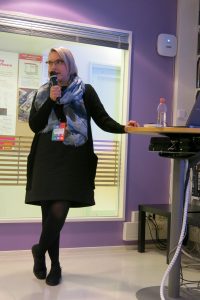
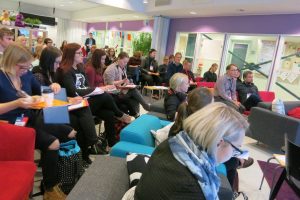
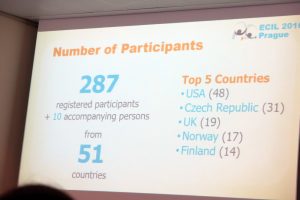
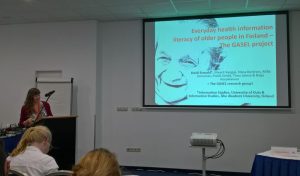
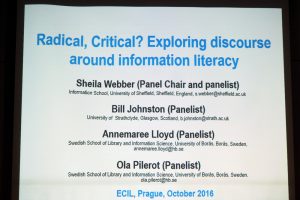
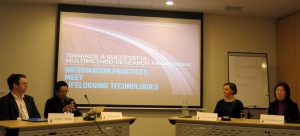
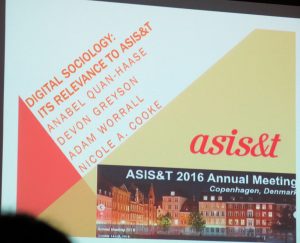
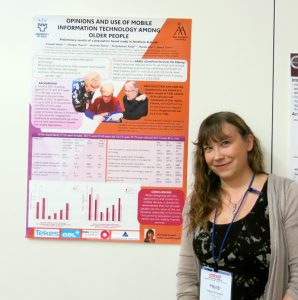
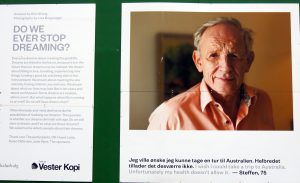
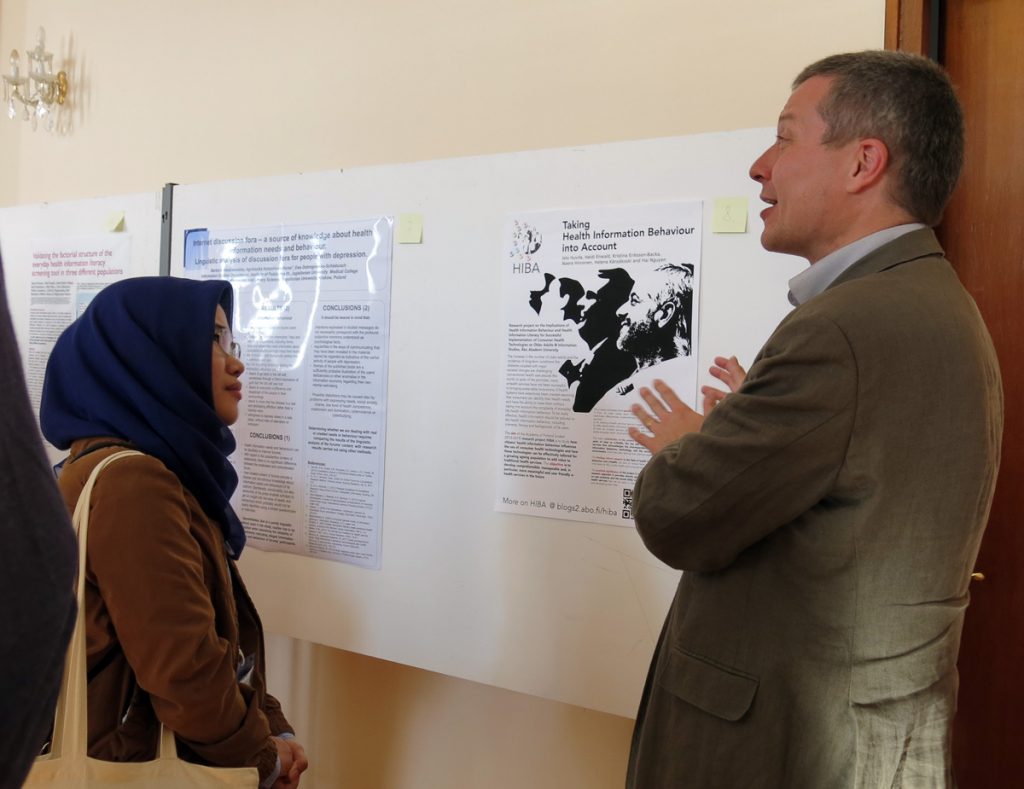
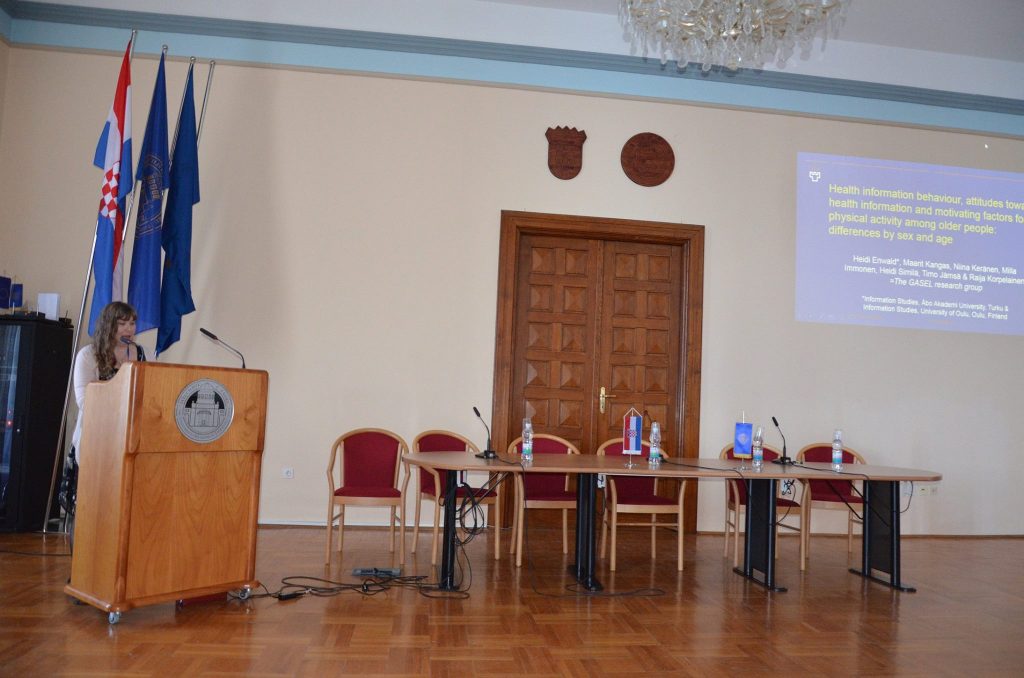
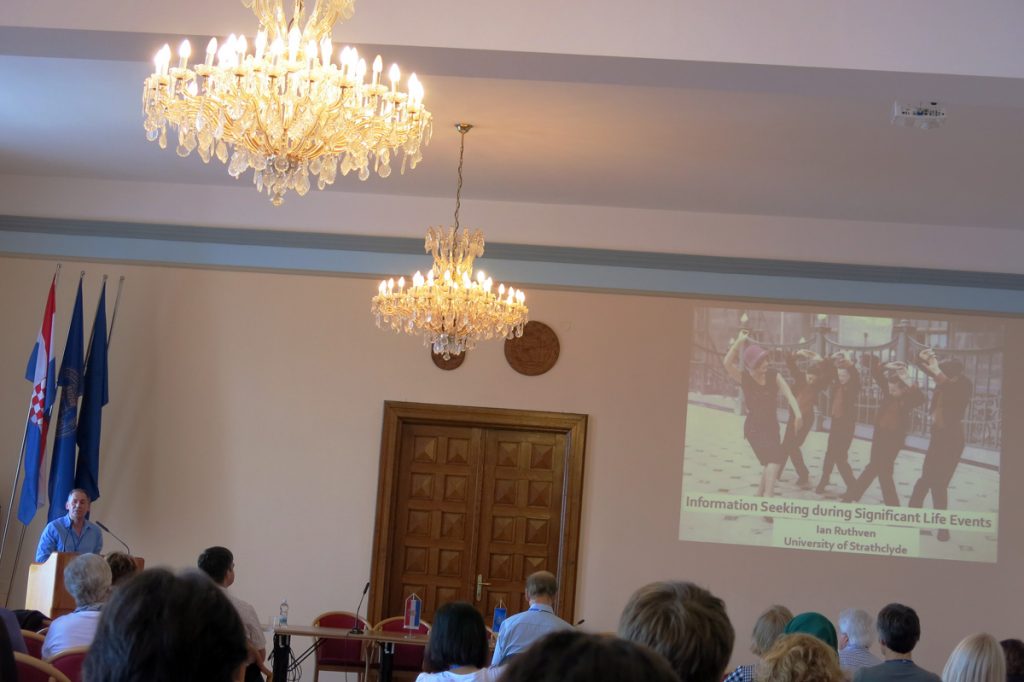
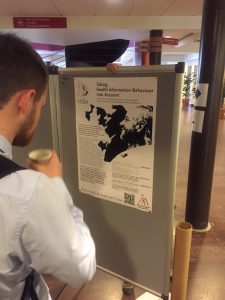 HIBA project was presented as a poster at the
HIBA project was presented as a poster at the